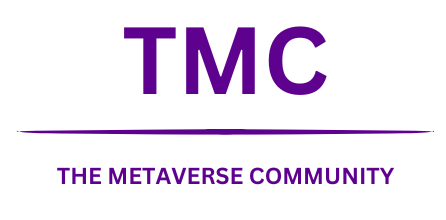Ethereum claims to be the home to digital money, global payments and applications making them more than just a cryptocurrency. It’s a decentralized, open-source network that enables the creation of smart contracts and decentralized applications (dapps). A community open to everyone stating all you need is internet. Ethereum’s goal is to decentralise banking making it non-discriminatory that is active 24/7.
Ethereum isn’t just for money, you can tokenise creatives, meaning that when a buyer resells an asset, you can receive royalties. Ethereum envisions a world where finance, art, and other digital assets can be traded and managed in a transparent and permissionless manner. For the users it is said there are no costs, unlike the web 2.0 where you pay through your data.
Beyond Currency: Smart Contracts and Dapps
Ethereum’s smart contracts are self-executing contracts with the terms of the agreement directly written into lines of code. This allows for the automation of various processes, from simple payments to complex financial derivatives. Dapps, built on top of Ethereum, leverage these smart contracts to create a wide range of decentralized services and applications.
Gas Fees
While Ethereum network says that it’s a free service, there is a “gas fee” which is essential a marginal percentage of the transaction paid. This fee, paid in Ethereum’s native cryptocurrency, Ether, compensates nodes for the computational power used to process and validate transactions. Gas fees can vary based on network congestion and the complexity of the transaction. These fees are then “burned” to avoid inflation. There is a gas Limit and different transaction requirements depending on the transaction i.e. is a contract need or is there storage required, etc.
However this fee as it’s a percentage adjusts based on the intrinsic value of Ethereum at a given time. Much like how car owners will rush to the pumps at low prices, Ethereum transactions could also see a similar phenomenon happen as its price fluctuates
Why Ethereum Stands Out
Ethereum works on something known as Proof of Stake (PoS) consensus mechanism and participants in the validation process must own coins or tokens rather than the Bitcoin’s energy-intensive Proof of Work (PoW) model is in play where participants must buy equipment and run that equipment. The later is significantly more expensive to run. In PoS, validators stake their Ether to participate in block creation, earning rewards for their effort. This approach is seen as more energy-efficient and scalable.
Security Concerns and Solutions
Ethereum acknowledges potential vulnerabilities, primarily related to attacks and censorship. To mitigate these risks, the Ethereum Foundation and developers are actively working on upgrades such as Ethereum 2.0, which aims to improve scalability and security through sharding and other enhancements.
Attacks
Its believed that Ethereum blocks can be influenced, or convince validators to reconfigure. Ethereum are working on a new secure system that will not allow any time for validators to potentially reconfigure blocks called Single slot finality (SSF)
Censorship
Censorship is a concern to stop too many validators influencing the platform. distributed validator technology (DVT) has been implemented stopping one person from
Who Is Behind Ethereum
Ethereum is a decentralized network with no single entity or authority in control. Development is driven by a global community of developers, researchers, and enthusiasts. The Ethereum Foundation, a non-profit organization, supports the network’s growth and development. The system is decentralised however the driver for validation is through Gas Fee. The more the developer has invested / validating transactions the more they can make.
There is no one organisation behind Ethereum however groups of people add to the platform allowing them to validate more transactions.
Ethereum’s Impact and Future
Ethereum has already sparked significant innovation in finance, with the rise of decentralized finance (DeFi) platforms offering services like lending, borrowing, and trading without traditional intermediaries. NFTs, representing unique digital assets, have also gained immense popularity on Ethereum.
As Ethereum continues to evolve, it faces challenges like scalability and high gas fees. However, with ongoing development and community support, Ethereum remains a leading force in the world of blockchain and cryptocurrency, paving the way for a more decentralized and inclusive future.




